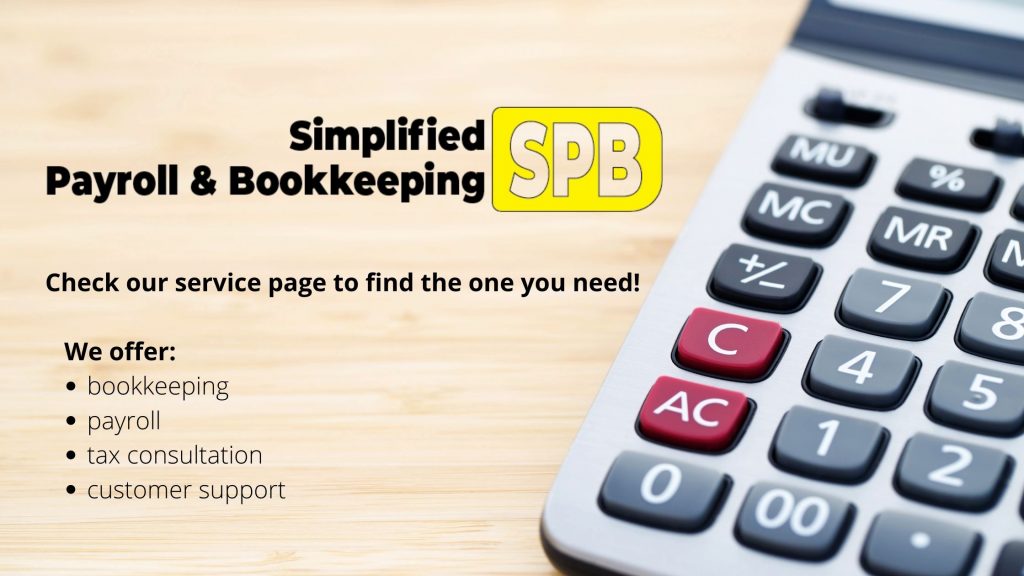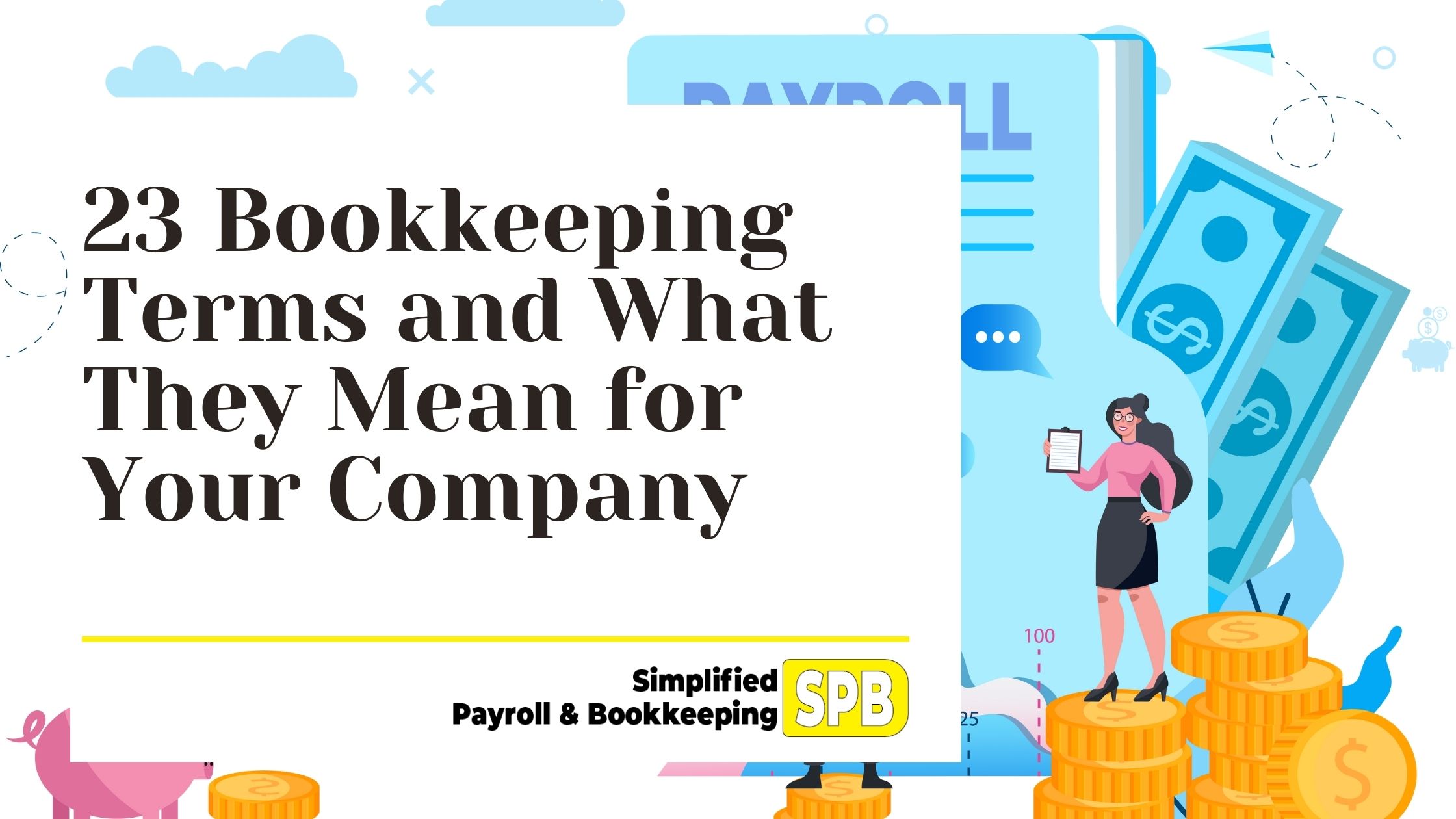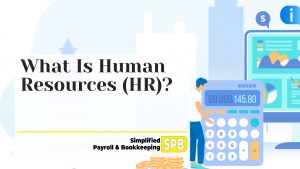Bookkeeping Terms #1: Accounts
Your accounts are your way of keeping track of every financial eventuality of your business. In short, they are your receipts. By keeping organized accounts, you can detail every aspect of your income and every expenditure that you make.
Accounts are typically recorded in relation to a particular period of time, or in relation to one specific project. These different accounts are also called journals and they allow you to look at individual business transactions separately and then consider them as a whole. Once you have your accounts properly ordered, you can use what they tell you about your business’ financial situation to create statements, such as income statements, profit and loss statements, and cash flow statements.
Bookkeeping Terms #2: Accounting Period
This simply refers to the period of time it takes for you to record your accounts and formulate your annual financial statements, which is information that you can then provide for things like paying tax. An accounting period is typically 12 months long and known as a fiscal year.
Bookkeeping Terms #3: Accounts Payable
Your accounts payable document money that you owe so that you can ensure you pay any suppliers or other workers on time. You will need to record exactly how much you owe because it counts as a debt for your business until you have paid out.

Interested in payroll and bookkeeping services in United States? For more inquiries, you may contact us at 737-931-1413 or email us at info@SimplifiedPB.com.
Check our service page to find the one you need! We offer:
Bookkeeping Terms #4: Accounts Receivable
This is essentially the opposite of your accounts payable because it is money that you are due to receive from other parties. Typically, it will be payments from customers that you have not yet received, so you can initiate the process of getting that money by crediting your accounts with it and then moving it to your cash accounts once it comes through.
Note that Accounts Receivable are counted with your current assets when recorded on a balance sheet because you are guaranteed to receive that money, which you can then add to your accounting balance sheets.
Bookkeeping Terms #5: Accruals
Accruals are technically what comes before you have a solid record of your accounts payable and accounts receivable. A financial accrue is the build-up towards money either being paid out by you or paid to you. When keeping your books, use accruals to keep track of these sales and expenses so that you can make provision for them and ensure your accounts are properly settled.
Bookkeeping Terms #6: Assets
Assets are the main financial holdings of your business because they are the things that you own and can financially profit from. You must also record assets when completing your accounts because they count towards your business’ income and, subsequently, the amount of tax you can be charged.
Bookkeeping Terms #7: Balance Sheet
Previously mentioned in reference to recording money that you owe or are owed, a balance sheet is a statement of all your essential financial information from the past fiscal year. It will allow you to accurately compare everything you own and everything that you need to pay out, which makes it easy to see how financially stable your business is.
Balance sheets require a lot of information to achieve this accuracy. You need to record your assets, debts, equity capital, and liabilities as a start. And everything needs to be perfectly recorded so that external parties can get an accurate insight into how your business performs financially. Ensure that you track every equity and liability no matter how small because the two together must equal your assets on a balance sheet.
Bookkeeping Terms #8: Bank Reconciliation
This is a statement that documents all of your transactions so that you can see exactly when money has been deposited into your bank account or withdrawn from it. Having a bank reconciliation statement for your business is the best way to prevent fraud because if you keep record of every penny going in or out, you’ll notice any suspicious transactions straight away.
You also need bank reconciliation to verify your business’ accounting because the report will compare the money in your bank account with the balance on your bank statements, showing where your business makes money and where it needs to pay out. This information can then be used for your books to help you keep note of your business’ financial performance every month.
Bookkeeping Terms #9: Cash Flow
This is exactly what it sounds like: the cash that �flows’ in and out of your business. Every financial insight that you can record on your balance sheets will be demonstrated by regularly tracking your cash flow. Positive cash flow is indicative of flourishing finances and means that you can comfortably settle any accounts payable, record an increase in assets, and plan for the future.
Negative cash flow is the opposite because it indicates that you have spent more than you’ve received in one fiscal year, though it may be that you have inaccurately recorded your income and expenditures rather than suffered a financial loss. This is why your balance sheets and bank reconciliation are so important.
Bookkeeping Terms #10: Chart Of Accounts
This is an integral organizational tool that helps a business index all of its accounts in one place for easy reviewing. You can use the financial breakdown displayed in your chart of accounts to create a profit and loss statement and keep an eye on all your transactions. The chart of accounts exists to make keeping the books simpler for you because every single transaction is broken down and recorded.
Bookkeeping Terms #11: Cost Of Goods Sold (COGS)
Another more obvious term, the cost of goods sold refers to how much it costs a business to produce the goods that it sells. This includes any materials and all the necessary labour, and working out the COGS of a single sale tells you how much you need to pay any workers, which is documented under your accounts payable.
It can be included as an expense on your balance sheets too. To work out how much gross profit you actually made from a sale, simply subtract the COGS from how much the customer paid. That is the money you will be left with after paying out for the production costs and you can add it to your income when keeping your books.
Bookkeeping Terms #12: Double-Entry Bookkeeping
This type of bookkeeping allows you to create two separate entries detailing the same transaction. It pertains that every transaction you make has different effects in different accounts. For efficient double-entry booking, use a journal, a ledger, a trial balance, and financial statements. You’ll first record a transaction in your debit entries, which refer to your income, and then again in your credit entries, which refer to your expenditures.
An example of this is you taking money from your bank account to buy a printer for your office. In your debit entries, you record the cost of the printer as an asset acquired by your company, but then in your credit entries you log how much it cost because, though it becomes an asset, it is also an expenditure. You can also use the double-entry process for things like loans because in your debit entries you’ll have gained the money, but then in your credit entries you’ll have incurred a liability which will need paying back in the future. This is called the Duality Principal.
Bookkeeping Terms #13: Equities
Your equities will show you the worth of your business once you have no more debts or other expenditures to pay off. So, they are the money you actually have because you have already paid out for everything you owe. You can work out your equities by subtracting your liabilities from your assets and then record the information in your accounts.
Bookkeeping Terms #14: Expenses
Your expenses are all the money that you spend to keep your business on track. A few common expenses are the costs of producing goods, wages for labour, utility bills, and other general supplies. You spend money out of your business to benefit it, such as with the printer example for the double-entry booking term, so even though you’re spending money you are putting it back into the business.
Interested in payroll and bookkeeping services in United States ? For more inquiries, you may contact us at 737-931-1413 or email us at info@SimplifiedPB.com.
Bookkeeping Terms #15: Expense Category
To organize those expenses for easier bookkeeping, they can be put into expense categories. COGS is one example of an expense category because all your expenses related to production and labour are categorized together. Other categories include how much you spend on bills, the repayment of any loans, and any general supplies, such as technical equipment.
Bookkeeping Terms #16: General Ledger
The general ledger is the overall collection of all your accounts and should be your main point of interest when reviewing all of your business’ financial activities. It will contain your debit and credit entries, both validated by a trial balance, all your individual journal entries, and every account that you keep. A well-organized general ledger will keep your business in perfect order.
Bookkeeping Terms #17: Income Statement
This is another name for the previously mentioned profit and loss statement. It details all the money going in and out of your business to show you how much you have profited and where you have incurred financial losses. You should have your income statement alongside your balance sheet to have two sets of information on all your income and expenditure.
Bookkeeping Terms #18: Journals
Journals are your accounts and the way that you record all your transactions. You can enter costs, dates, sales, and expenditures into a journal to track how your accounts have been affected each month. By having space in the journal for individual transactions you’ll be able to spot anything wrongly recorded much more easily.
Bookkeeping Terms #19: Liabilities
A liability is anything that your business is legally responsible for and that you are required to pay out to cover. Any loans or debts that you incur are liabilities that become expenses when you pay them, and you should track these payments with your accounts payable.
Bookkeeping Terms #20: Payroll
Your business’ payroll is simply a log of employees and how much they need to be paid for their work. The payroll also calculates how much tax each paycheck will incur and you need to keep note of this for your records.
Bookkeeping Terms #21: Single-Entry Bookkeeping
This is a similar method of record to double-entry booking, but it only requires you to make one entry for each business transaction. And you only need to use one accounting system: a cash register. You should use single-entry bookkeeping when only one account will be affected by a transaction, such as just your income.

Check also what Wikipedia has to say about accounting and bookkeeping terms.
Bookkeeping Terms #22: Trial Balance
This is part of the double-entry bookkeeping process. It is how you’ll know if your double-entry records are accurate because you’ll be able to see if your debit and credit accounts match or clash. If there are discrepancies due to incorrectly recorded information, you should go back through your accounts and work out where you went wrong.
Bookkeeping Terms #23: Worksheet
You’ll only really need the worksheet if you are having the aforementioned issues with your trial balance. It is easiest to create a worksheet as a spreadsheet so that you can input all the necessary data, accounts, and costs. These are then used to track every detail you log and any changes you make to the records.
Interested in payroll and bookkeeping services in United States? For more inquiries, you may contact us at 737-931-1413 or email us at info@SimplifiedPB.com.




